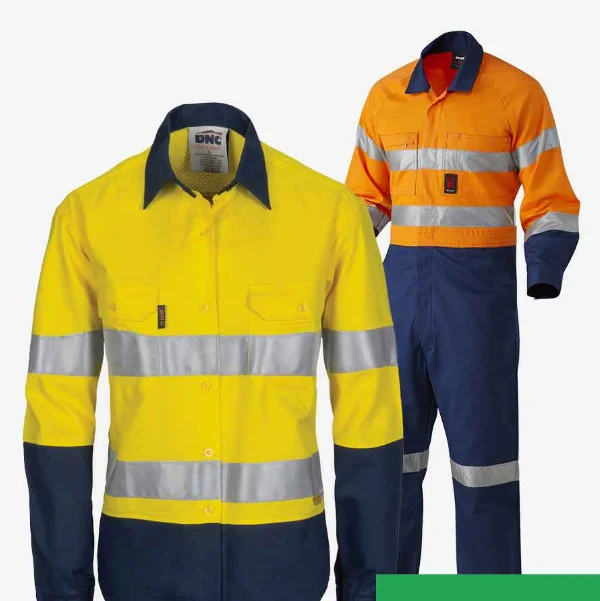Personal Protective Equipment (PPE) safeguards workers across various industries from potential hazards. Reliable PPE is essential in construction, healthcare, manufacturing, or any other sector. When sourcing PPE, proximity can significantly affect timely delivery and cost-efficiency. This article will develop the importance of finding local PPE suppliers near you, the types of PPE to consider, and critical factors to remember when selecting a supplier near you.
The Importance of Local PPE Suppliers
- Timely Delivery
Local suppliers can often deliver PPE more quickly than those located farther away. This is crucial in emergencies or situations where PPE stocks need rapid replenishment.
- Cost Savings
Proximity to suppliers can reduce shipping costs and minimize lead times, allowing for more efficient budget management.
- Personalized Service
Local suppliers often offer more personalized service, including on-site consultations and tailored solutions, ensuring that the PPE meets your needs.
- Supporting Local Economy
Purchasing from local suppliers supports the local economy, fostering community growth and development.
Types of PPE to Consider
PPE encompasses a broad range of equipment to protect workers from various hazards. Here are some essential types of PPE:
- Head Protection
Hard hats and helmets protect against impacts, falling objects, and electrical hazards. They are crucial in construction, manufacturing, and other environments where head injuries are risky.
- Eye and Face Protection
Welded helmets, goggles, safety glasses, and face shields shield the eyes and face from flying debris, chemical splashes, and extreme light.
- Hearing Protection
Earplugs and earmuffs reduce exposure to hazardous noise levels, preventing hearing loss in noisy environments such as construction sites and factories.
- Respiratory Protection
Respirators and masks protect against inhaling harmful substances like dust, fumes, and chemicals. They are vital in healthcare, chemical processing, and construction.
- Hand Protection
Gloves provide protection against cuts, abrasions, chemicals, and extreme temperatures. Different types of gloves are available for specific tasks, such as nitrile gloves for chemical handling and cut-resistant gloves for construction.
- Foot Protection
Safety boots and shoes protect against impacts, punctures, slips, and electrical hazards. They are essential in construction, manufacturing, and other physically demanding industries.
- Body Protection
Protective clothing, such as coveralls, lab coats, and high-visibility vests, protects against various hazards, including chemicals, heat, and visibility.
Key Factors to Consider When Choosing a Local PPE Supplier
- Product Quality and Certification
Ensure that the supplier offers high-quality PPE that meets industry standards and certifications. Find products tested and approved by organizations like OSHA, ANSI, and ISO.
- Range of Products
A good supplier should offer a comprehensive range of PPE to meet various needs. This includes essential items like gloves and masks and specialized equipment like respiratory protection and chemical-resistant clothing.
- Customization Options
In some cases, standard PPE may not meet specific requirements. Suppliers who offer customization options can provide tailored solutions to address unique safety challenges in your workplace.
- Customer Reviews and Reputation
Read customer reviews and testimonials to research the supplier’s reputation. A supplier with a solid track record of reliability and customer satisfaction will likely provide high-quality products and services.
- Technical Support and Training
Choose suppliers who provide technical support and training on adequately using and maintaining PPE. This will ensure that your employees can use the equipment correctly and maximize its effectiveness.
- Delivery and Logistics
Reliable delivery and logistics ensure you receive your PPE on time and in good condition. Choose suppliers with efficient distribution networks and responsive customer service.
- Cost and Value
While cost is essential, it should not be the sole criterion. Evaluate the supplier’s value, considering product quality, durability, technical support, and customization options.
Conclusion
To guarantee workplace safety and adherence to health and safety laws, you must locate trustworthy PPE suppliers in your area. By considering factors such as product quality, range, customization options, and supplier reputation, you can make informed decisions that protect your workforce and enhance operational efficiency. Investing in high-quality PPE from local suppliers ensures timely delivery and cost savings, supports the local economy, and fosters a safer working environment.

Ruby Stauffer is a prominent technology blogger known for her insightful analysis and in-depth reviews of the latest tech trends and gadgets. Her blog has become a go-to resource for tech enthusiasts seeking reliable information and expert opinions on the ever-evolving world of technology.

